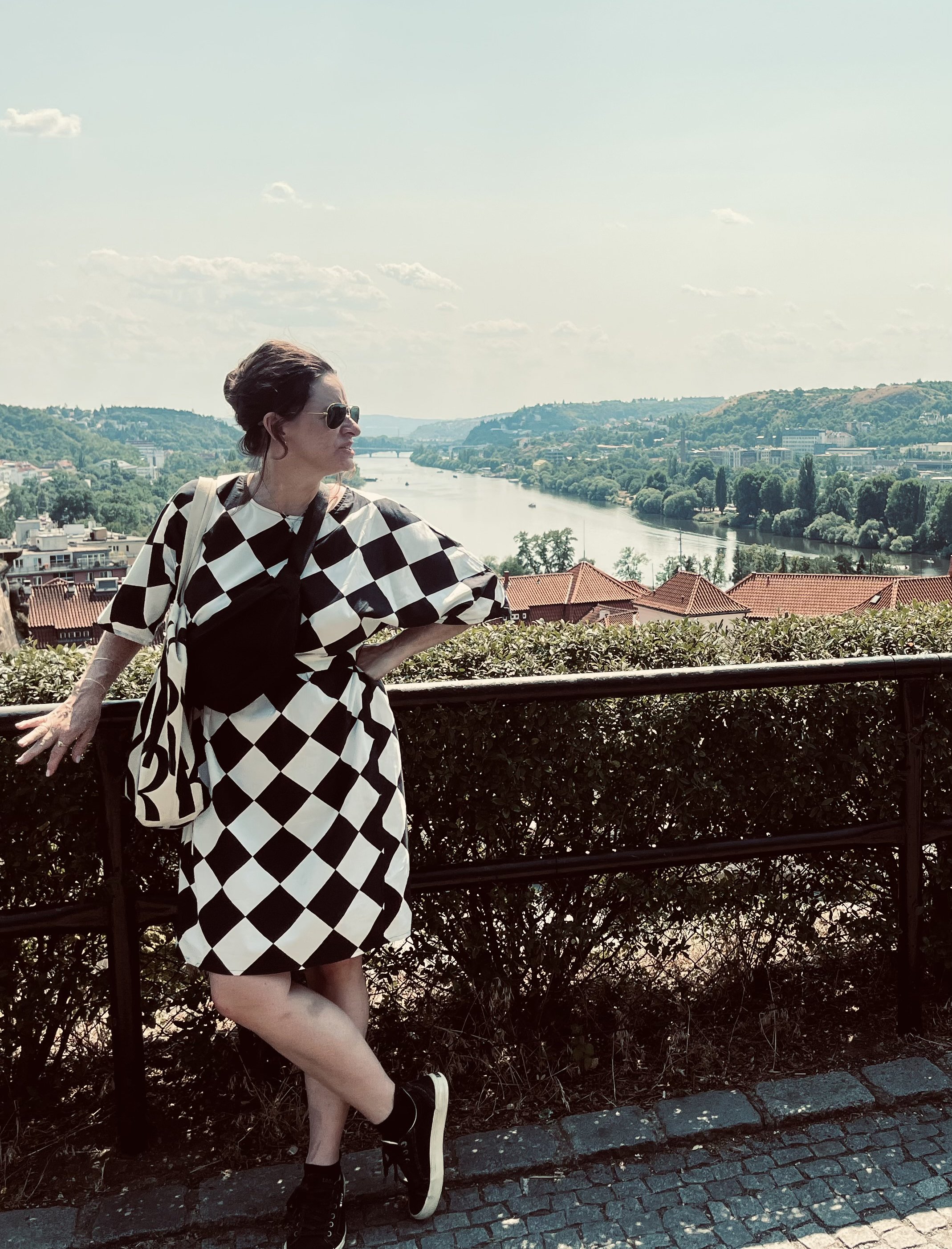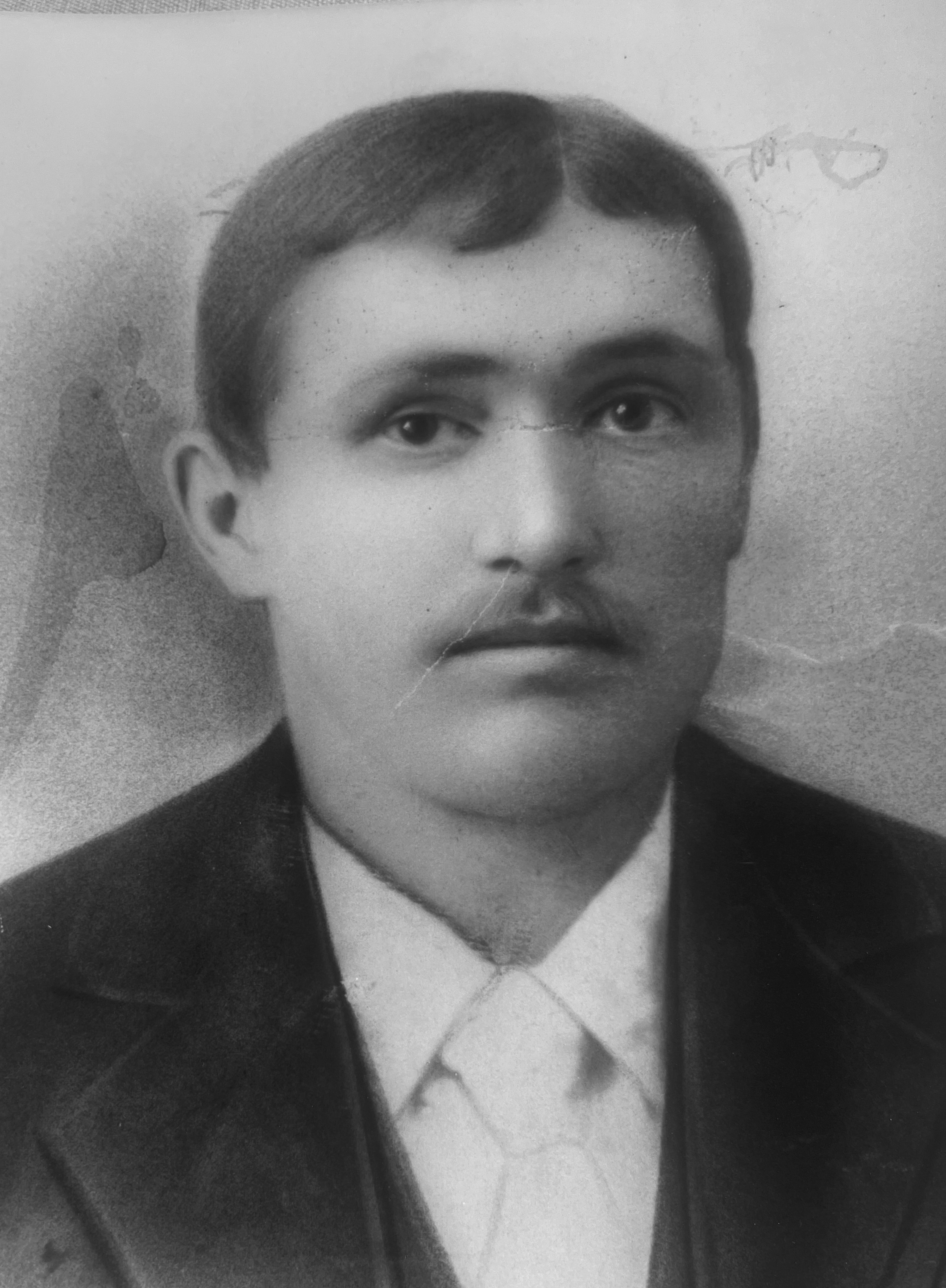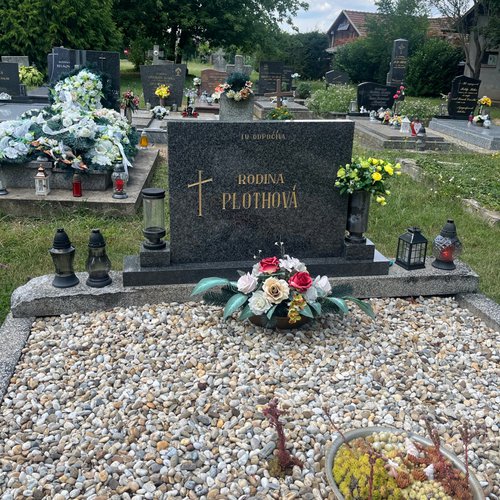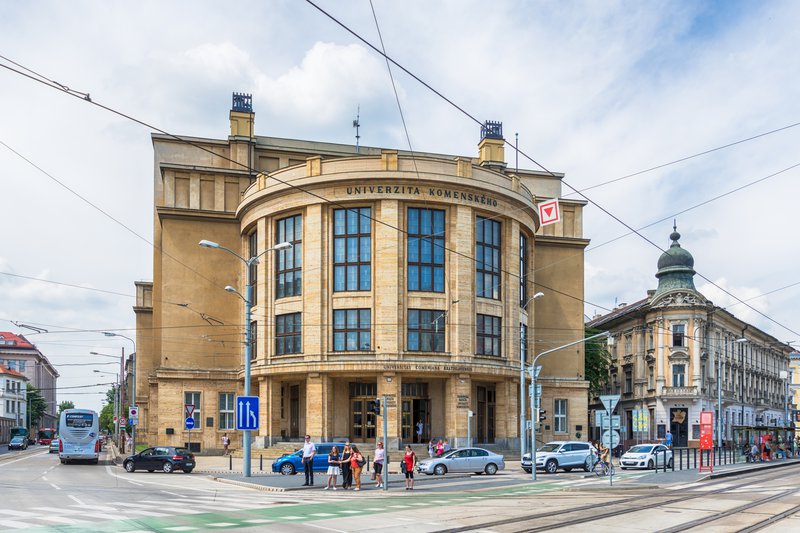Writing and Rhetoric Professor Receives Fulbright Award to Teach and Research in Slovakia
For Professor Amy Murphy, a family discovery leads her to research the history of literacy in Slovakia under communist rule.

Genealogy websites like Ancestry.com are a popular way for individuals to trace and preserve their family histories. Before this information was widely accessible via the web, people would often learn about their past through stories passed down from older generations. While a good way for family members to connect with one another and take pride in their roots, these oral histories could be subjective and not provide the full picture of how a family came to be. If certain details about a family’s past were omitted or altered, then inaccuracies could be perpetuated for generations. For Amy Murphy, associate teaching professor of writing and rhetoric in the College of Arts and Sciences, an unexpected discovery about her family history played a pivotal role in her scholarly pursuits, and ultimately led to her applying for and receiving a prestigious Fulbright U.S. Scholar award to teach and conduct research in Slovakia.
Journey to Discovery
The research expedition began in Syracuse in 2023 when Murphy’s husband took a deep dive into her lineage using Ancestry.com. While working to recreate a family tree, he came across a surprising document: a Census record stating that Murphy’s great-grandfather, Anton Plott, listed his home country as “Slovak Land” (a term previously used to denote Slovak-inhabited territories). This came as a shock because the family had always believed him to be of Austrian descent.

“I was just very perplexed because that was not part of any conversation I ever had with my father or my grandmother or any member of that family,” says Murphy, who has taught several different writing and rhetoric classes since starting at the University in 2019. “I was just trying to understand what had happened there and why I never knew about it, and so that sort of began a larger interest that I had in Central Europe and in Slovakia in particular.”
To piece together this complicated puzzle, Murphy knew it would take more than the information available to her on the web. Luckily, she already had a trip planned to Czechia (Czech Republic), a country which borders Slovakia, for an unrelated conference in summer 2023.
“I thought that I might not get to do this again, so I set out to figure out where his village was,” says Murphy. “Since Slovakia is a very small country of about 5 million people, I presumed I’d have a good shot at finding it.”
She contacted Michael Razus, a local historian, and explained that she would be taking the train to Bratislava (the capital of Slovakia) from the Czech Republic and asked if there was anyone who could take her around Kalná nad Hronom, the village where she believed her great-grandfather was born. She was introduced to another local resident, who helped her locate the cemetery where her family’s burial plot was situated and visit the Catholic church where her great-grandfather, Anton Plott, was baptized.

The family grave of Amy Murphy’s ancestors, the Plotts.

The Catholic church in Kalná nad Hronom where Amy Murphy’s great-grandfather, Anton Plott, was baptized.
After confirming the birthplace of her great-grandfather, the question turned to why this information was kept secret. Murphy believes it probably had something to do with the period when he emigrated to the United States. Anton came to the U.S. in the 1880s at the age of 15, a time when the Slovak people were repressed and struggling to find national identity under the Austro-Hungarian Empire.
“He came to the United States as such a young person by himself,” says Murphy. “It was a very odd time historically and socially because of what was happening in Europe politically. Slovaks did not have a recognized, national identity because they were subjects of the Austro-Hungarian Empire. For outsiders coming to the United States at that time, they would have never disclosed that they were Slovak.”
Murphy says the experience of uncovering this remarkable untold aspect of her family history was not only emotional, but also inspired her to seek a deeper connection with her Slovak roots through her research and scholarship.
“I just felt really determined that I wanted to find a way to connect to the country, and so the Fulbright seemed the natural place to do that, so I began the application process,” says Murphy.
Connecting with Her Culture
Murphy’s research concentration lies at the intersection of history, language and literature. As a Ph.D. student at the University of Arizona, she focused her dissertation on how women writers were documenting labor in the 19th century. Her longstanding interest in the historical and cultural aspects of language and writing is what led her to apply for a Fulbright, where she will research literacy in the Slovak Republic.
Whereas in the United States people have maintained the freedom to read and learn freely, Slovakia (formerly Czechoslovakia until 1993) was under an authoritarian communist rule from 1948 to 1989, which deeply impacted the literacy of people living in that country. At universities, inquiry and free debate was stifled, and lectures would often emphasize the benefits of communism. Following the Velvet Revolution in 1989, a protest movement that ended more than 40 years of communist rule in Czechoslovakia, students gained the ability to pursue their own academic interests and learn about the diversity of cultures and perspectives on a global scale.
“When I was in college in the late 1980s, people my age in Slovakia couldn't read the literary texts that I could because they were banned,” says Murphy. “I'm interested in my generation - people that were born in the 60s and 70s – and want to explore how literacy worked in a former dictatorship in terms of access to materials and how that affected people's ability to read and think.”
Among the topics Murphy will investigate is samizdat (from Russian sam, “self,” and izdatelstvo, “publishing”), which was literature secretly written, copied and circulated in Czechoslovakia and throughout the former Soviet Union.
“There was a whole underground of people who had typewriters and were making copies of books and manuscripts,” says Murphy. “The government saw books such as J.R.R. Tolkien’s ‘Lord of the Rings’ as being a threat to a communist ideology and people could go to jail for reproducing these books. I'm very interested in finding out more about how people accessed literature.”

As a U.S. Fulbright Scholar, Murphy will teach and conduct research at Comenius University in Bratislava, the largest university in Slovakia.
Murphy will research and teach in the British and American studies program at Comenius University located in Bratislava, Slovakia. She will work with faculty there to explore the role United States authors and academics played in helping the underground writers to connect to literature and find inspiration. In addition, she will connect with students, faculty and their families to document their experiences with language, literature and education to examine how Slovaks in former Czechoslovakia expressed themselves artistically despite the difficulties and potential dangers they had in obtaining texts.
As a scholar who specializes in innovative writing pedagogy, Murphy will work with Slovak students who are studying to become teachers of English. Being able to share materials which she has created for the writing studies program at Syracuse with future educators in Slovakia carries great significance, both professionally and personally.
“What I have been able to achieve in my academic and scholarly career was made possible because my great-grandfather came here and took that kind of risk and worked very hard his whole life,” says Murphy. “Having the opportunity to teach abroad and immerse myself in the culture of my ancestors is a huge gift and I'm incredibly grateful for it.”
Murphy will travel to Slovakia for the Fall 2024 semester and says she looks forward to sharing the cross-cultural teaching and research insights she gains during her time abroad with students in her classes and faculty at Syracuse University. She also plans to publish and share the results of her findings at conferences and in a scholarly journal upon her return.
About the Fulbright U.S. Scholars program:
Since 1946, the Fulbright Program has provided more than 400,000 participants from over 160 countries - chosen for their academic merit and leadership potential - with the opportunity to exchange ideas and contribute to finding solutions to challenges facing our communities and our world. Each year over 800 U.S. citizens are awarded Fulbright awards to engage in cutting-edge research and expand their professional networks, often continuing research collaborations started abroad and laying the groundwork for forging future partnerships between institutions. Upon returning to their home countries, institutions, labs and classrooms, they share their stories and often become active supporters of international exchange, inviting foreign scholars to campus and encouraging colleagues and students to go abroad.
